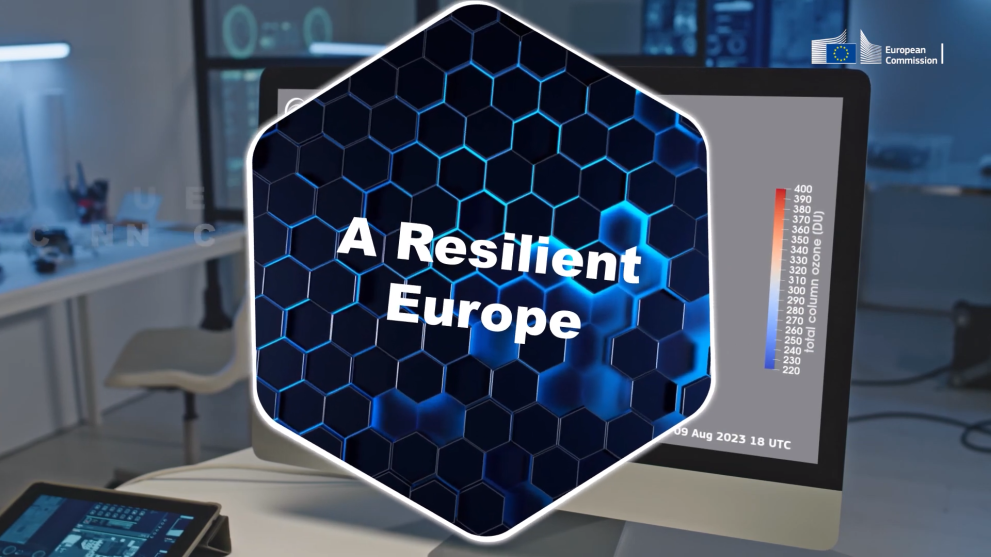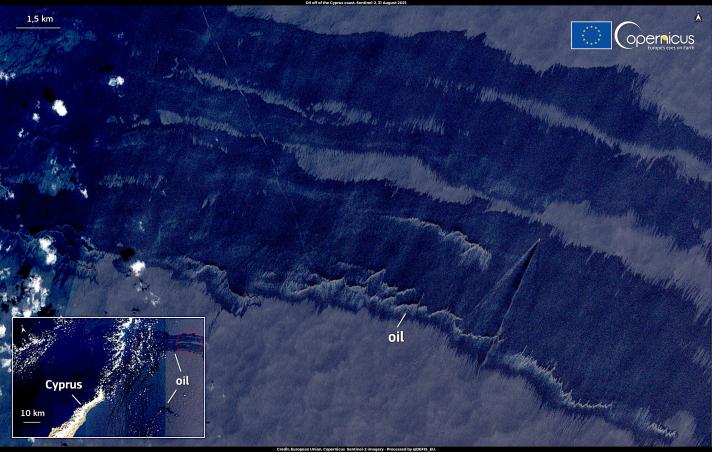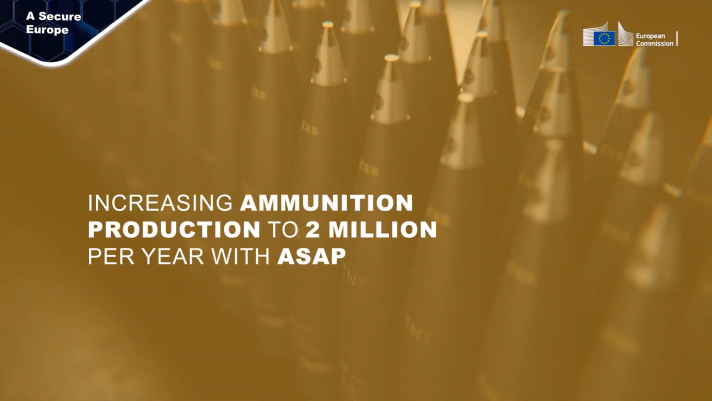Since the start of Russia's war of aggression in Ukraine, DG DEFIS has introduced a series of measures to meet increased demand for ammunition and ramp up production in the wake of a fundamentally changed security environment in Europe. Such defence industry initiatives include ASAP and EDIRPA.
To improve Europe’s climate resilience, European policy-makers, scientists and companies can rely on Copernicus, the Earth observation component of the European Union’s Space Programme and the most sophisticated in the world. Copernicus looks at our planet and its environment, generating data that is used to benefit all European citizens.

Looking after our planet with Copernicus
Climate resilience, or the ability to prepare for, recover from, and adapt to the impacts of natural disasters such wildfires, tornadoes and so on, is an increasingly common phrase in the climate change context. To improve Europe’s climate resilience, European policy-makers, scientists and companies can rely on Copernicus, the Earth observation component of the European Union’s Space Programme and the most sophisticated in the world. Copernicus looks at our planet and its environment, generating data that is used to benefit all European citizens. It offers information services that draw from satellite Earth observation and in-situ (non-space) data through specific services.
The Copernicus Atmosphere Monitoring Service (CAMS) provides continuous data and information on atmospheric composition. The service describes the current situation in Earth’s atmosphere, forecasts the situation a few days ahead, and analyses data records for recent years. CAMS supports many applications in a variety of domains including health, environmental monitoring, renewable energies, meteorology and climatology.
Likewise, the Copernicus Climate Change Service (C3S) supports society by providing authoritative information about the past, present and future climate in Europe and the rest of the world. The C3S mission is to support the European Union’s climate adaptation and mitigation policies by providing consistent and authoritative information about climate change. It offers free and open access to climate data and tools based on the best available science, helping its users to meet their goals in dealing with the impacts of climate change.
The Copernicus Marine Service provides regular and free authoritative information on the state of the blue (physical), white (sea ice) and green (biogeochemical) ocean on a global and regional scale. The Marine Service is designed to serve EU policies and international legal commitments related to ocean governance. It caters to the needs of society at large for global ocean knowledge and boosts the blue economy across all maritime sectors by providing free-of-charge state-of-the-art ocean data.
Supporting the EU Green transition with help from Space
In late 2019, the European Commission presented the European Green Deal, a pact that sets out the path for the Union to achieve climate neutrality by 2050 while ensuring sustainable economic growth and a just and inclusive transition for citizens and businesses. With the EU Green Deal, the EU is paving the way towards a sustainable economy in the future by setting concrete targets not only to protect the environment but also to build a greener economy that manages Earth’s resources in a sustainable way.
From helping curb CO2 emissions to fighting illegal logging, the EU Space Programme is a key resource of the European Union in its efforts to transition to a more sustainable path for the future.
Positioning, navigation, and timing services from Galileo and EGNOS are central to rolling out next-generation applications and services in a vast array of fields, such as smart farming, while also contributing to the reduction of road and aviation emissions through route optimisation.

Oil spill near Cyprus as captured by Copernicus Sentinel-2
For instance, by relying on EGNOS, pilots can optimise their landing procedures across hundreds of European airports, significantly reducing aviation emissions. For instance, in Almeria Airport, use of EGNOS together with efficient descent techniques has made it possible to reduce emissions by 38%.
#EUSpace can improve maritime operations as well. The accurate navigation offered by Galileo and EGNOS, together with information on currents from the Copernicus Marine Service, helps optimise ship routes, resulting in less fuel being used and less carbon being emitted. Space-generated data also helps maritime operators comply with the International Maritime Organisation’s greenhouse gas strategy.
What’s more, images from the Copernicus Sentinel-1 are used to detect oil spills. When combined with accurate positioning from Galileo, they assist authorities in reaching the incident site quickly and easily, helping to minimise the negative impacts of oil spills.
Reinforcing space and defence supply chains
The EU defence industry is characterised by multiple supply chains. Since the start of Russia's war of aggression in Ukraine, DG DEFIS has introduced a series of measures to meet increased demand for ammunition and ramp up production in the wake of a fundamentally changed security environment in Europe.
Two of these initiatives are the European Defence Industry Reinforcement Procurement Act (EDIRPA) and the Act in Support of Ammunition Production (ASAP). These are complementary initiatives, targeting the supply and demand side respectively.
EDIRPA incentivises Member States to commonly procure urgently needed defence capabilities and products. It promotes cooperation between at least three Member States for the common procurement of the most critical and urgent defence products from the EU's Defence and Technological Industrial Base (EDTIB), thereby helping to make procurement more competitive and fit for purpose in the current context. ASAP aims to support the immediate and rapid ramp-up of ammunition and missile production capacity in the EU. It directly supports producers of these defence products, as well as their supply chains. With the support of ASAP, Europe is expected to reach an annual ammunition shell production capacity of 2 million by the end of 2025.

Ensuring EU independence in the supply of critical components for the development of European satellites, such as for the Copernicus and Galileo programmes, is also of crucial.
Europe’s satellites can endure the harsh space environment thanks to the unique materials used to create them. The production of satellite components like transistors and solar panels relies on the supply of critical raw materials such as germanium and gallium.
Currently, around 90% of gallium and 60% germanium is produced in and exported from Asia. To reduce its reliance on exports from third countries the European Commission, through the Horizon 2020 programme, has invested €100 million to promote Europe’s strategic autonomy in the supply of critical raw materials, for which there are presently no alternatives in the EU, for key space technologies and to underpin the maintenance, development and evolution of its space systems and components.
The Commission will now increase this investment in Horizon Europe to respond to the needs that have arisen due to the current geopolitical context. As of 2023, €20 million will be allocated to critical space technologies on a yearly basis.

